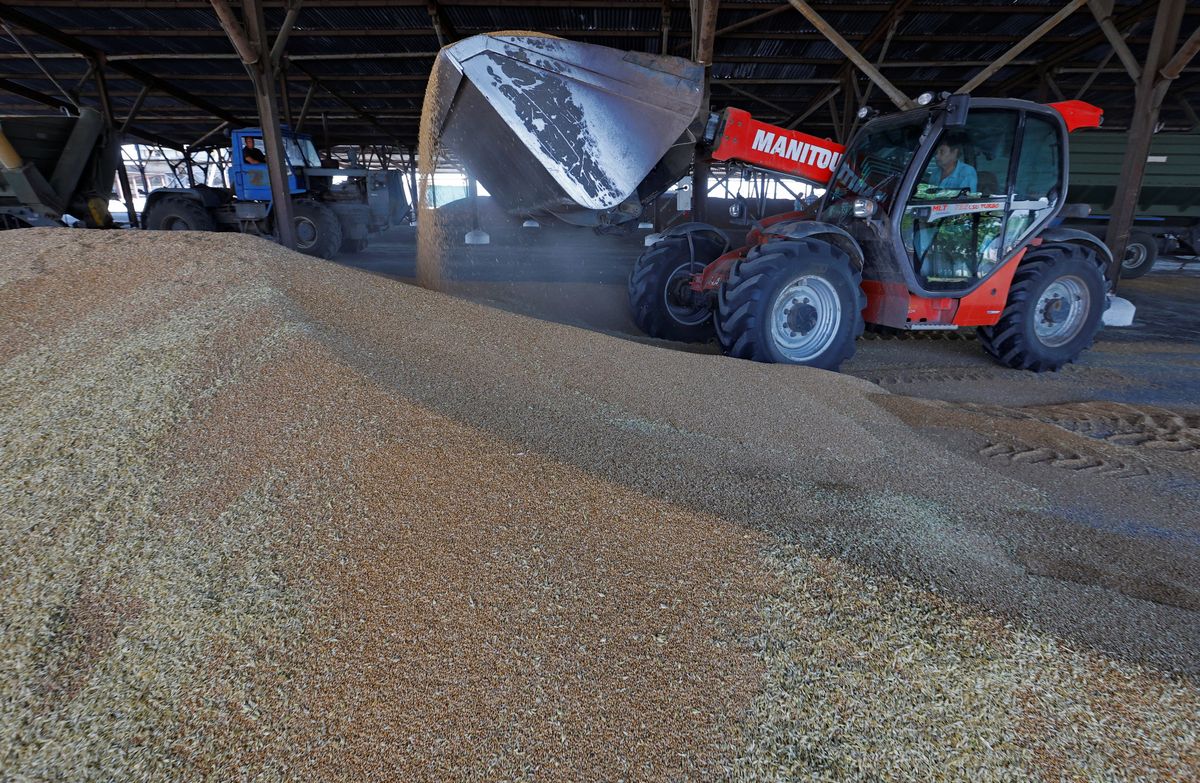EU countries extend ban on Ukrainian grain imports
Five EU countries – Poland, Slovakia, Hungary, Romania and Bulgaria – have decided to extend their ban on Ukrainian grain imports.

A few minutes every morning is all you need.
Stay up to date on the world's Headlines and Human Stories. It's fun, it's factual, it's fluff-free.
The backstory: Ukraine is one of the world's biggest exporters of grain, but since Russia's invasion last February, grain stocks have been piling up in the country. The tension escalated when Russia blocked grain shipments in the Black Sea, contributing to the ongoing global food crisis.
Then, in May, the European Commission set up "solidarity lanes" to help Ukraine export its grain and import goods smoothly. On top of that, it decided to lift all duties and quotas on Ukraine's exports, so lots of low-priced Ukrainian grain flooded into Europe. That created some market imbalances in neighboring countries, as Copa-Cogeca, the European farmers' association, pointed out.
Last June, the UN and Turkey worked out a deal with Russia called the Black Sea Grain Initiative to allow the shipments to resume. They wanted to make sure some 33 million tons of crop exports could sail smoothly through the Black Sea. Then, in October, Russia suddenly pulled out of the agreement, blaming Ukraine and the UK for alleged drone attacks. But a few days later, Russia changed its mind and rejoined the export deal, promising to keep the Black Sea safe for Ukrainian ships.
More recently: In April, farmers protested low-priced Ukrainian grain imports for undercutting their own sales and prices. Poland and Hungary reacted by banning Ukrainian grain temporarily and food imports to protect their markets.
Earlier this week, Russia announced that its year-old deal allowing grain shipments from Ukraine through Black Sea ports would no longer be effective after Tuesday.
The development: Five EU countries – Poland, Slovakia, Hungary, Romania and Bulgaria – have decided to extend their ban on Ukrainian grain imports beyond the initial deadline of September 15. Their main concern is protecting their own farmers. According to agricultural ministers and Polish Prime Minister Mateusz Morawiecki, Ukrainian grain caused an oversupply in their countries before, which drove down domestic farmers' prices. So now they're calling on the EU to find a solution that helps Ukraine's grain get where it's needed without hurting the transit countries' domestic agriculture.
In a joint declaration, the ministers of these five nations expressed their support for helping Ukraine's grain pass through their borders via road, rail and river routes. The import ban will stick around until 2023, but transit shipments to other countries will still be allowed as per the EU agreement.
Key comments:
“We support Ukraine in every way, but under the condition that food imports can’t distort the internal market,” said Slovak Agriculture Minister Jozef Bires. “We are in the process of harvesting, and some of our warehouses are full due to the past grain imports.”
“This coalition is not against anyone, not against Ukraine or the EU, it is in the interest of our farmers,” said Polish Agriculture Minister Robert Telus.
“Bulgaria is in solidarity with Ukraine, but a local glut is being created on the agricultural market, because instead of export corridors our countries are becoming warehouses,” said Bulgaria’s agriculture minister Yavor Gechev in January.




Comments ()